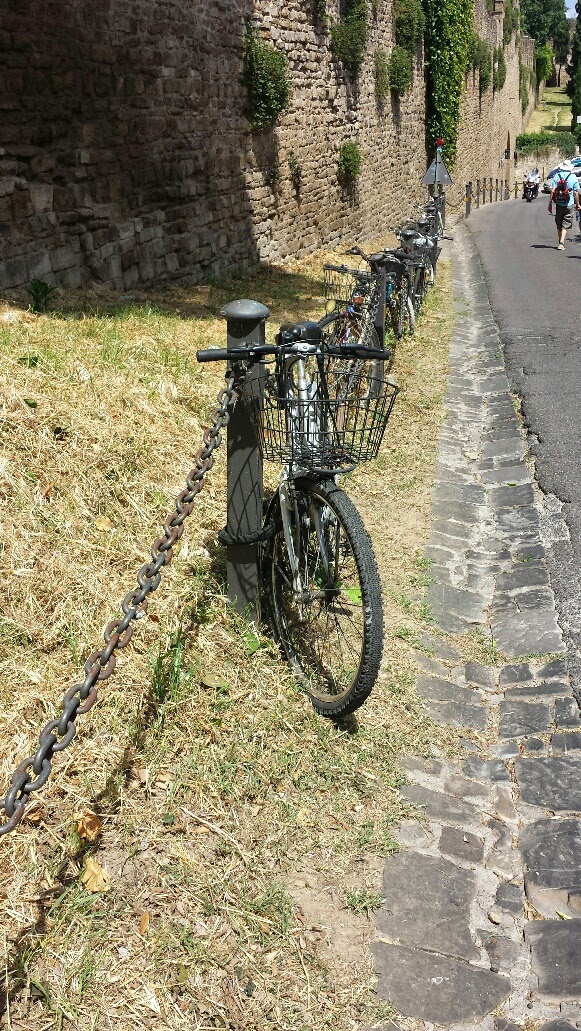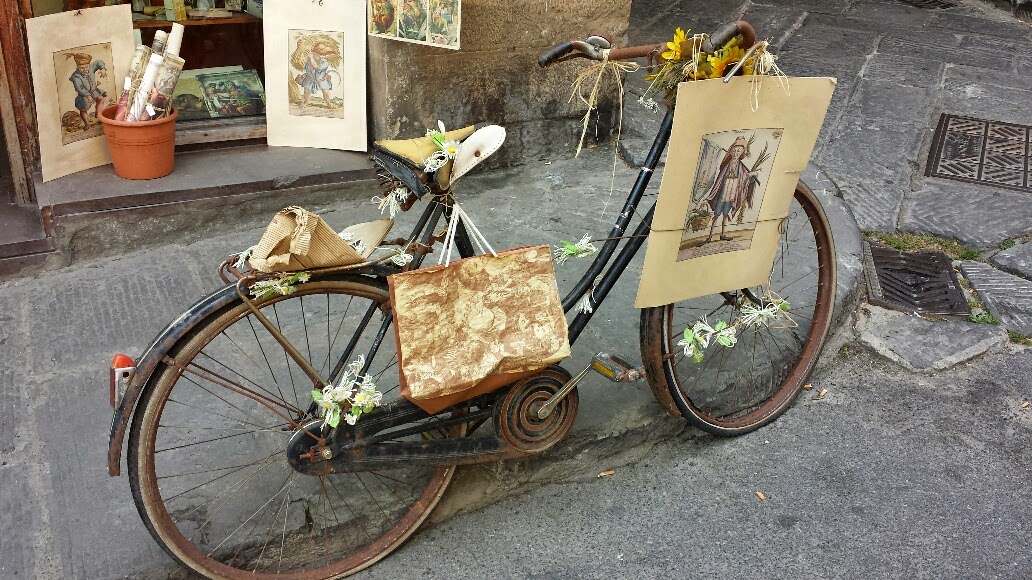I was a late starter into competitive racing, in my early twenties ,with the main influencing factors being a seasonal farm job, further education and a death in the family.
The former gave me some cash to buy my first bike capable with a bit of tweaking and upgrading of equipment to enter road races and time trials. The second factor was going away to Polytechnic in Nottingham and in that city of great cycling pedigree I joined a local club which gave a structured edge to what up until then had been just playing on two wheels. Sadly, my Grandfather died but his legacy to me was invested (although not in the true financial sense of the word) in a custom made, lightweight bike which in today's money would more than match the price of a Pinarello or Colnago.
I still have that bike with its 531 Reynolds tubing and I am often stopped on the roadside by enthusiasts, mostly youngsters, who marvel at the lugwork, enamel lustre and the classic geometry lines. It still goes like stink even with a larger version of me on it.
My Palmares, or record of achievement, over my racing career?
One win, a few placings, enough money to pay for petrol on the way home from a few events and on a good day this would stretch to a bottle of Lucozade, some nice bits of kit won as prizes and enough fun and memories to last a lifetime.
I still dine out on that solitary victory mainly because of the look of incredulity and pride on the face of my Father when I came in over the line well ahead of the rest of the field. My achievement made it into a small paragraph in Cycling Weekly. It didn't matter that they mispelt my surname.
Typically for a student I had plenty of downtime. This was taken up with wide ranging training rides from Nottingham into the Peak District with a standing joke being about looking for tarts in Bakewell, south into Leicestershire and Rutland and easterly to Grantham and Skegness. On a balmy summer evening a group of four of us would blast down to Loughborough and back in a team time trial formation or just wander up to Harvey Hadden Stadium to watch our mates brave enough to take on the rough concreted surface of the outdoor track.
In my later working life I was able to sponsor a cycle racing team over 15 years. As they say, if you can't do it yourself give others the means to do it on your behalf. Sounds a bit dodgy but it was meant with the best intentions and motives.
With a bit of experience in all things cycling comes a level of usefulness to the local cycling scene.
In recent years I have stood on countless corners as a Course Marshall, blown whistles amongst the trees of Dalby Forest at Mountain Bike World Cup Events, driven the Race Commissaire on British Championships , acted as Neutral Service from the back of my company car, stuck direction signs into the verges of country road verges, swept loose debris from road junctions, seen the badly dislocated finger (first hand) on a Team GB rider and presented prizes on the podium to the best cyclists in the UK.
You may think that it all sounds exciting.
You are absolutely correct.
Inevitably cycling is one of those sports where nothing seems to happen for a long time and then everything kicks off at once. I live for my cycling to the present day even if my age, physique and BMI combine to thwart my re-enactments of the great rides of the Grand Tours even just on the short pedal down to the local supermarket. Darn those electric bikes. I always set off to chase them down but they seem to go on forever.
When not on the bike or otherwise confined indoors by freakishly bad weather and domestic chores I have a fallback onto an extensive library of books and films.
There are four which I can recommend for an essential grounding in cycling for all, from the seasoned club rider to someone thinking about buying their first serious bike and venturing into the great outdoors.
"French Revolutions" by Tim Moore is a brilliant read about a non-cylist setting out to ride the entire course of the Tour de France in the year 2000. His is a trial of great physical discomfort but I agree with the critical acclaim of it as one of the funniest books about sport ever written.
"Domestique" by recent Tour rider Charly Wegelius gives a graphic insight into the (as the title purports) the true life ups and downs of a Tour Pro. Relevant to the Yorkshire Grand Depart is that Charly's Mum is from York. It is a compelling read and the description of race tactics is thrilling.
"Stars and Water Carriers" is a documentary film of the 1974 Tour of Italy. Its screening in the church hall meeting place of my first Cycling Club gave me the inspiration to just ride. It is a must see. I have just noticed that it is available, all of its 88 minutes, on You Tube.
"Breaking Away" is a 1979 rites of passage movie with cycling as a focal point of small town life and the aspirations of a group of friends. Some of the bike action is a bit dodgy but it is a real feel good film.
Have a happy time and be inspired in the great sport of cycling.


































